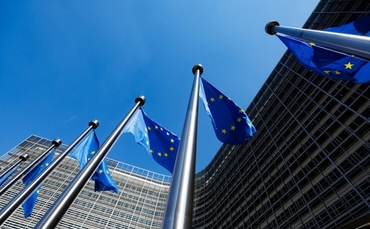The European Commission opened a formal investigation into Microsoft Teams in July 2023 “to assess whether Microsoft may have breached EU competition rules by tying or bundling its communication and collaboration product Teams to its popular suites for businesses Office 365 and Microsoft 365”, according to a European Commission statement [PDF].
That followed a complaint submitted by rival collaboration software provider Slack, claiming that Microsoft had infringed Article 102 of the Treaty on the Functioning of the European Union prohibiting “the abuse of a dominant position that may affect trade within the EU… or restrict competition”.
Now, after almost a year, the European Commission has sent its Statement of Objections to Microsoft, featuring its preliminary view that Microsoft did, indeed, breach EU antitrust rules.
“In particular, the Commission is concerned that Microsoft may have granted Teams a distribution advantage by not giving customers the choice whether or not to acquire access to Teams when they subscribe to their SaaS productivity applications. This advantage may have been further exacerbated by interoperability limitations between Teams’ competitors and Microsoft’s offerings,” claimed the European Commission in a new statement.
In response to the opening of the investigation last year, Microsoft backtracked and pledged to stop bundling Teams with Office 365 and Microsoft 365 in Europe, extending that globally in April. However, the Commission claims that “more changes to Microsoft’s conduct are necessary to restore competition”.
Microsoft president and vice chairman Brad Smith – formerly general counsel for the software giant – said in a statement that the company would “find solutions to address the Commission’s remaining concerns”.
Apple, meanwhile, has become the first target of the EU’s Digital Markets Act. It is accused of preventing app developers, selling via its App Store, from “freely steering consumers to alternative channels for offers and content”, according to the preliminary findings of an investigation into the company.
“In addition, the Commission opened a new non-compliance procedure against Apple over concerns that its new contractual requirements for third-party app developers and app stores, including Apple’s new ‘core technology fee’, fall short of ensuring effective compliance with Apple’s obligations under the DMA,” the statement continued.
It claims that Apple’s business terms with developers don’t go far enough in allowing developers to communicate with customers and provide them with information. It only allows developers to provide a link to a web page where the customer can conclude a contract, and even this concession comes with multiple restrictions imposed by Apple “that prevent app developers from communicating, promoting offers and concluding contracts through the distribution channel of their choice”, according to the Commission.
A particular bone of contention between app developers and Apple is that for subscription services, such as Spotify, Apple takes a 30% cut of the subscription fee every month. Apple, for its part, has a business interest in preventing app developers from offering free apps, then cutting it out of the revenue loop with alternative payment mechanisms, either in-app or via website.
The European Commission, though, believes that app developers should not be completely dependent on big tech app stores and the whims of technology giants such as Apple.
“Our preliminary position is that Apple does not fully allow steering. Steering is key to ensure that app developers are less dependent on gatekeepers’ app stores and for consumers to be aware of better offers. We have also opened proceedings against Apple in relation to its so-called core technology fee and various rules for allowing third party app stores and sideloading,” said Margrethe Vestager, executive vice president in charge of competition policy.
She added that the Commission also supports efforts to provide alternatives to the App Store.

